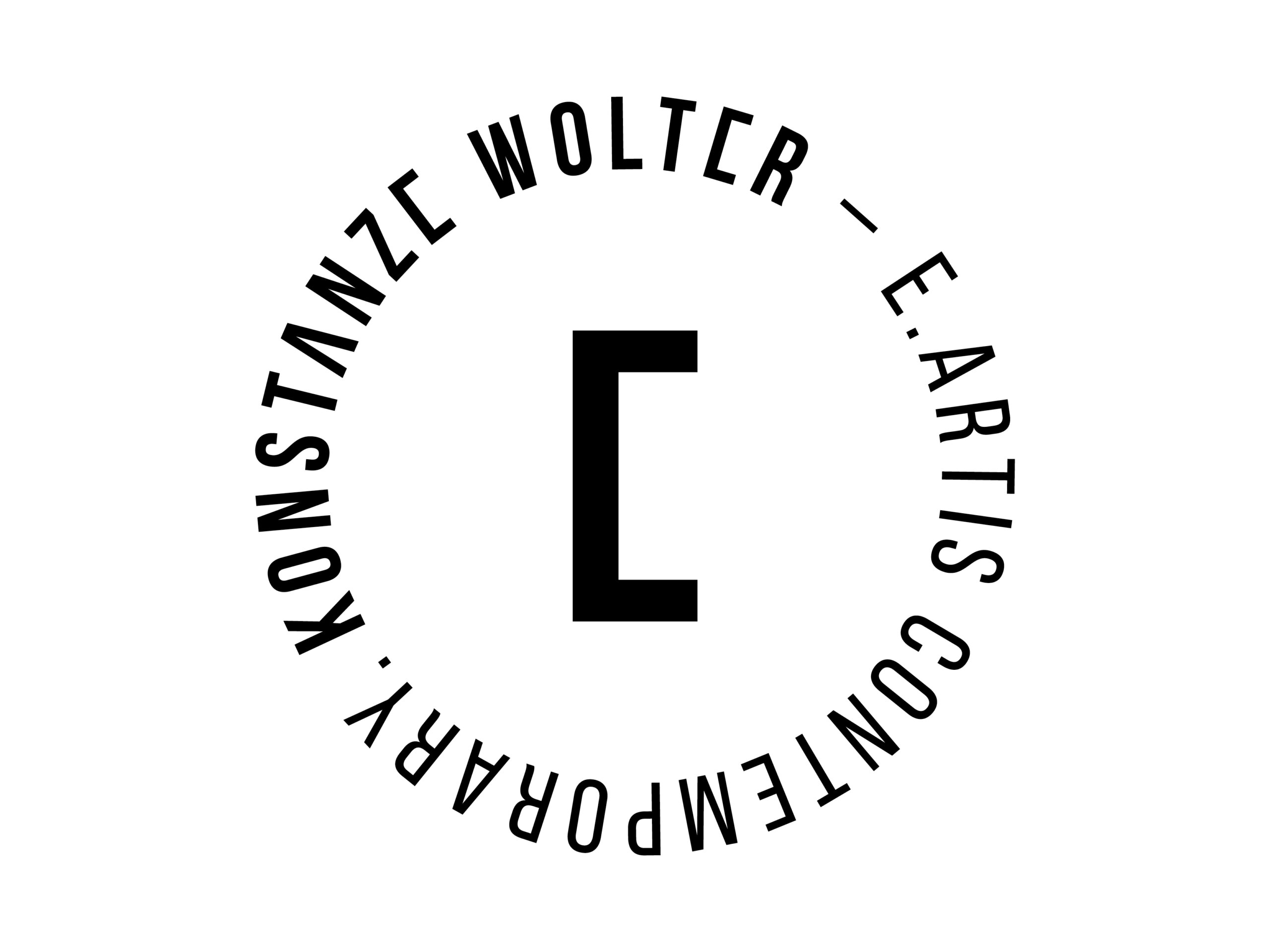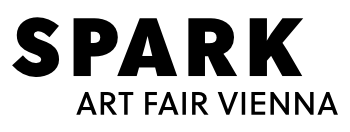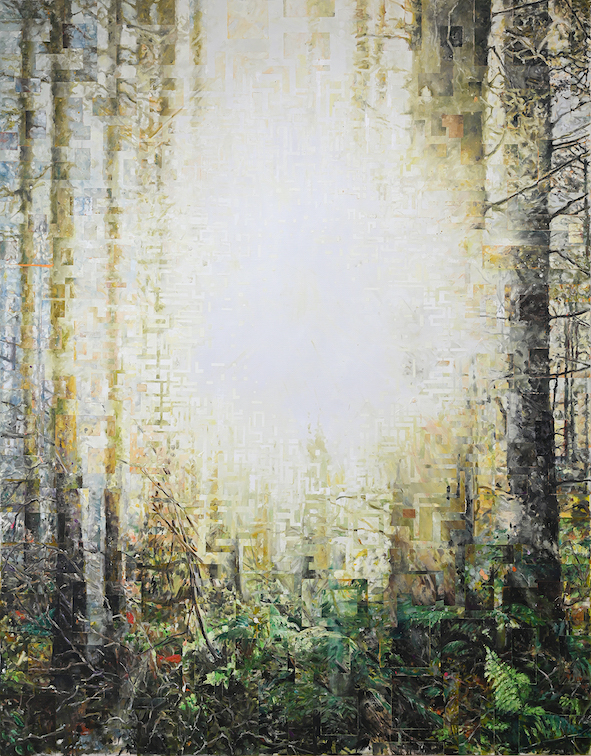Konstanze Wolter e.artis contemporary
Jeppe Lauge
Jeppe Lauge is concerned with the dualism of seeing. While one level of the paintings presents the scenery in a clearly realistic style, a blurry version of the same motif is layered on the canvas at the same time on the same level. Thus, seeing the paintings becomes first and foremost a search – searching for focus, for hold, for recognition, for clarity. A few cognitive processes later subjective perception reveals what is seen, which, reminiscent of Rorschach pictures, varies from individual to individual. Do we all see the same thing? Is what one sees more valid than what the other sees?
„Lauge’s painting, with its digital origins in photography and Photoshop, tells a story in which we become the protagonists navigating our lived bodies through nature while bringing with us our accumulated experiences of images of nature—images in painting, photography, digital media—as well as our memory of abstraction. His work asks us: What does it mean to look with the naked eye? “ Robert R. Shane
Biography
Jeppe Lauge (born in east Jutland in 1980) is a Danish artist, living and working in Denmark. He studied at Århus kunsthøjskole and Ærø kunsthøjskole in Denmark before moving to Amsterdam in 2008 where he graduated from The Gerrit Rietveld Academy (fine arts).
Since his first solo show in 2007 at Machwerket in Århus, his work has been regularly shown in solo and group exhibitions in Denmark, France, the Netherlands and Germany.
Konstanze Wolter e.artis contemporary
Established in 2020, Konstanze Wolter e.artis contemporary in Chemnitz centers its thematic focus on cultural questions of identity. The artist community continually examines the essence of human existence at this pivotal moment in history, probing into the factors that define us as individuals. The gallery explores what makes us human and the profound impact of society and digital media on our personalities and identities. Witness an expanded program featuring artist positions that delve into questions of reality and perception, as each artwork contributes to the ongoing exploration of our collective identity and the understanding of cultural roots.

+4937180007832
Konstanze Wolter
+4937180007832
Jeppe Lauge
Jeppe Lauge is concerned with the dualism of seeing. While one level of the paintings presents the scenery in a clearly realistic style, a blurry version of the same motif is layered on the canvas at the same time on the same level. Thus, seeing the paintings becomes first and foremost a search – searching for focus, for hold, for recognition, for clarity. A few cognitive processes later subjective perception reveals what is seen, which, reminiscent of Rorschach pictures, varies from individual to individual. Do we all see the same thing? Is what one sees more valid than what the other sees?
„Lauge’s painting, with its digital origins in photography and Photoshop, tells a story in which we become the protagonists navigating our lived bodies through nature while bringing with us our accumulated experiences of images of nature—images in painting, photography, digital media—as well as our memory of abstraction. His work asks us: What does it mean to look with the naked eye? “ Robert R. Shane
Biography
Jeppe Lauge (born in east Jutland in 1980) is a Danish artist, living and working in Denmark. He studied at Århus kunsthøjskole and Ærø kunsthøjskole in Denmark before moving to Amsterdam in 2008 where he graduated from The Gerrit Rietveld Academy (fine arts).
Since his first solo show in 2007 at Machwerket in Århus, his work has been regularly shown in solo and group exhibitions in Denmark, France, the Netherlands and Germany.
Konstanze Wolter e.artis contemporary
Established in 2020, Konstanze Wolter e.artis contemporary in Chemnitz centers its thematic focus on cultural questions of identity. The artist community continually examines the essence of human existence at this pivotal moment in history, probing into the factors that define us as individuals. The gallery explores what makes us human and the profound impact of society and digital media on our personalities and identities. Witness an expanded program featuring artist positions that delve into questions of reality and perception, as each artwork contributes to the ongoing exploration of our collective identity and the understanding of cultural roots.

